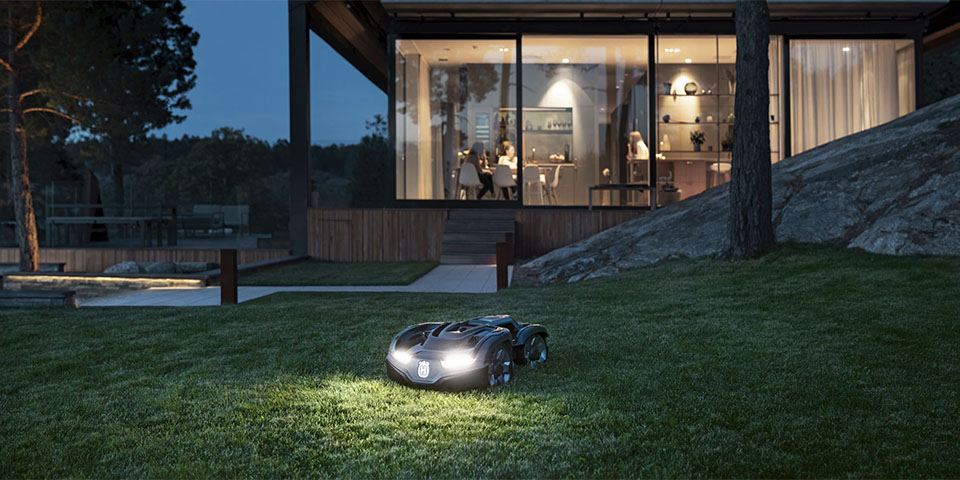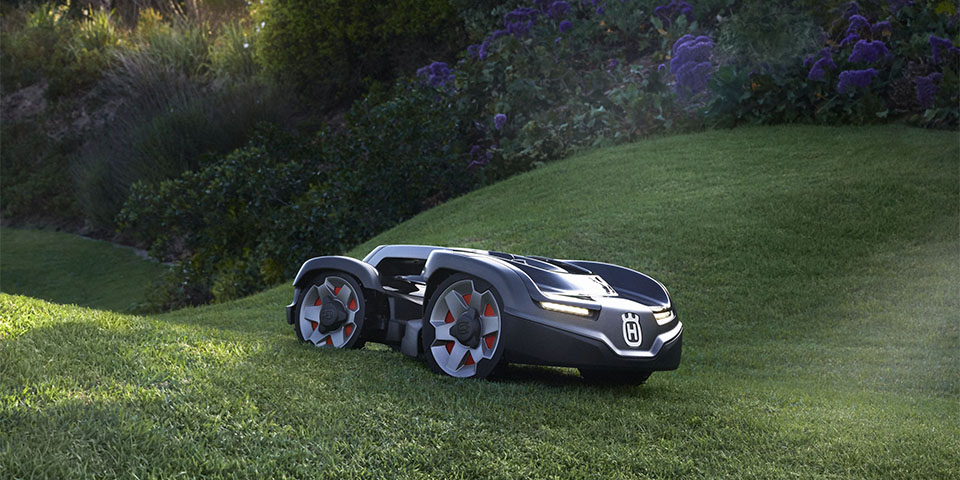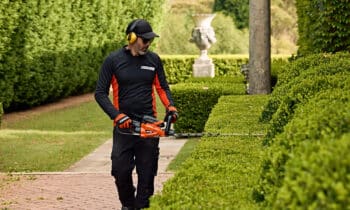
Robotic mower increasingly popular in Belgian garden
Husqvarna Automower turns 25
Husqvarna has been seeing sales of robotic mowers increase for a while now, and especially in Belgium. Why are we seeing so many robotic mowers driving around here, of all places? On the occasion of the 25th anniversary of the Husqvarna Automower, the Swedish brand joined forces with the research agency iVOX. Through a nationwide survey, a better insight was gained into the relationship between the Belgian and his garden in general and his robotic mower in particular. 1000 Belgians with a garden gave their opinions about the robotic mower. The survey revealed many remarkable conclusions.
It is common knowledge that Belgians are born with a brick in their stomach, but are green fingers also ingrained in their DNA? By way of introduction, we polled the Belgian and his garden and then zoomed in on his opinion about and experience with the robotic mower. The survey shows that 75% of the Belgians surveyed are extremely proud of their piece of greenery. We take care of it and want it to look good and cared for. Yet for at least 4 out of 10 Belgians it is not easy to make time for this. Especially for people with a large garden, maintenance is an extra challenge and a robotic mower comes in handy. One in five Belgians with a garden larger than 10 ares owns one.
What makes the robotic mower so special?
More Belgians own a robotic lawnmower (10%) or have an acquaintance (36%) or have a neighbor (16%) who has one, than Belgians who do not know anyone with one. Belgians with a robotic mower already claim to fully enjoy the benefits. It is time-saving (66%), drives off the grass accurately (45%), leaves no grass clippings (40%) and creates less noise pollution (34%). Not surprisingly, 9 in 10 owners are satisfied with it. The vast majority of those surveyed feel that their garden looks better than before the arrival of this garden helper and even claim to be proud of it. In fact, 8 in 10 robotic mower owners couldn't live without it anymore.
The man/woman behind the robotic mower
The Belgian with a robotic mower usually has a large garden and a busy life. In addition, the French-speaking part of Belgium has more robotic mowers. For example, 14% of Walloons own a robotic mower versus 7% of Flemings.
There is also something to be said about the differences between the younger (under 34) and the older generation (over 55). For example, just over half of younger people state that they do not have time to mow the lawn. Consequently, they are more likely to get a robotic mower in the house. In general, younger people are more satisfied with their robotic mower than older people and believe that the robotic mower cuts more accurately than the standard lawnmower (35% versus 25%). Moreover, younger people appear to be more enthusiastic about it, talk about it more and are already more likely to decorate and personalize it with stickers, for example.
Our Graston provides the perfect lawn
For four in ten Belgians, this technological garden helper has now become an indispensable part of the household. A third of those surveyed give it a name, just like a pet and as part of the family. Garden-oriented names such as Graston, Grassraptor or Herbie as well as common female and male names such as Caroline, Saartje or Juliette and James, Jaakie or Freddie are popular. Others then give their robotic mower a pet name such as "our boy" or Suske or name it after a cartoon character such as Flup or Gargamel. French speakers are more likely to choose the classic Titine or Tonton.
Other members of the family are more likely to have mixed reactions to the presence of the robotic mower. For example, 60% of those surveyed with children claim that their children are fascinated by it. Then again, the actual pets themselves are not such big fans of the family addition. 30% of those surveyed report that the dog is unimpressed by it and the cat is often frightened by it.
On the other hand, half of the robotic mower owners, including mostly young people, see their robotic mower as a high-tech toy rather than part of the family.
Some prejudices mowed down
Some interviewees seem to underestimate the many capabilities of the robotic mower. Turns out that robotic mower owners tend to think differently and more positively about their garden helper than those who don't have one.
Of the Belgians surveyed who do not own a robotic lawnmower, only 25% assume that it cuts the grass as accurately as a standard lawnmower. This is a big difference compared to the surveyed Belgians who do own a robotic mower. Of these, 64% are convinced that it works more accurately than a manual lawnmower. Among Belgians who know someone with a robotic lawnmower, 37% feel that that robotic lawnmower cuts the grass more accurately than those who do not know anyone with one (18%).
Is the robotic mower riding a bright future?
One in three owners of a robotic mower is convinced that he will see one driving around in every Belgian garden in 10 years. Young people think this more often than the elderly. Moreover, 15% of owners would like their neighbors to buy one as well. In addition, one in five of the Belgians surveyed without a robotic mower are considering buying one.
Still, Belgians consider the expensive purchase cost (60%) and the fact that the robotic mower cannot mow equally well at the sides or near obstacles (41%) as major drawbacks when considering the purchase of a robotic mower.
The survey shows that Belgians attach great importance to a beautiful lawn. But with an increasingly busy lifestyle, there is not much time left to optimally maintain the garden. A robotic mower brings solace in this case. Thanks to the time savings provided, owners can spend more quality time in the garden. It is therefore not surprising that the robotic mower is gaining a place in more and more Belgian gardens and hearts. After all, Belgians regard their technological garden helper not only as a handy helper, but as a fully-fledged part of the household.





